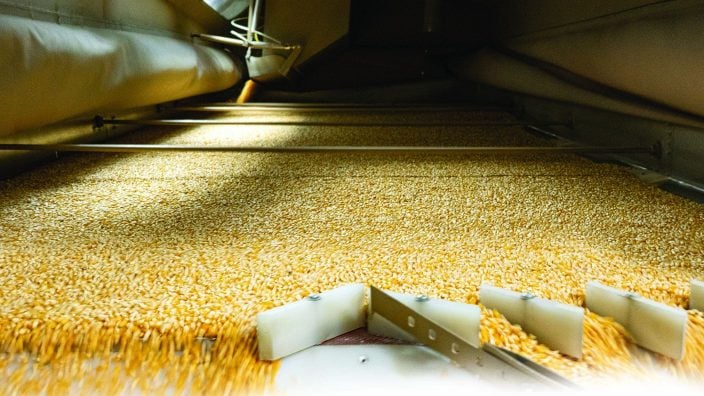Applications for Ohio Farm Bureau Health Plans now available
Members have three ways to apply: contacting a certified agent, calling 833-468-4280 or visiting ohiofarmbureauhealthplans.org.
Read MoreThe Mennel Milling Company was not looking to go into the popcorn business.
According to Jay McAllister, grain manager for Mennel Milling, the idea behind purchasing the large grain bin and processing facility now known as Mennel Popcorn in Wyandot County was to house grain from the milling company.
“We intended for it to be a place to store our organic and specialty grains (for the flour company),” McAllister said.
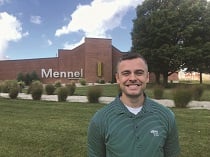
The company was formulating a plan to make the former Wyandot raw popcorn processing facility in Morral into a grain hub when something unexpected happened. A groundswell of support for maintaining the site’s heritage and business opportunity started to come from those who had a stake in the popcorn business — farmers.
“A group of growers came to us and said they’d really like to grow popcorn,” McAllister recalled. “They told us ‘there is a big opportunity here and we think you are a stable enough company to make it successful.’ We listened and the ball began to roll.”
Farmers had plenty of reasons to be bullish on the popcorn market when Mennel bought the facility in 2015. First off, popcorn was making a comeback after a downturn in the specialty crop in the early 2000s.
Secondly, popcorn production had been part of Marion County since Hoover Brown, and his wife, Ava, started the business as a side hustle during the Great Depression.
Long-time site office manager Tina Dunn knows exactly which reproduced black and while photograph she is looking for when she pulls a history book off a shelf in the tidy Mennel Popcorn office.
It’s an early 1900s class photo of Wyandot Popcorn founder Hoover Brown and his schoolmates in front of a one-room schoolhouse. That schoolhouse was where the very first popcorn production of the iconic Wyandot Popcorn brand took place. Mennel Popcorn sits on that site today.
In the decades since opening production in that one-room schoolhouse, Wyandot Popcorn grew to be one of the largest exporters of popcorn in the world. During that time the company also created a successful snack foods division, which is still headquartered today in Marion.
In 1989 Wyandot Popcorn sold its Morral production facility and the raw popcorn production side of the business to focus on its snack foods. The facility eventually became a plant for Conagra and remained in popcorn production for a global customer base.
Conagra planned to close the facility in 2015, leaving jobs, farmers and a lasting legacy behind. “I was here for that week between the time Conagra left and Mennel came in,” Dunn said. “It was an anxious time for us and the community.”
What Conagra also left behind was an experienced team and a recently renovated facility that still had a lot of years left in it, and that is when Mennel stepped in.
While flour had been Mennel’s flagship product since 1886, making popcorn profitable for the company was a kernel of a different variety. The company, by its own admission, needed some help.
“We had to learn the popcorn business,” McAllister said. “Popcorn is contracted by the acres with an individual farmer based on the variety or hybrid we want. We are used to working in an open market at the wheat mills. It was challenging for us.”
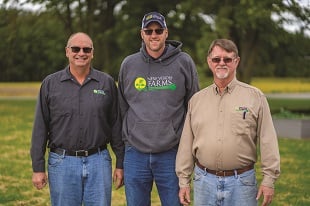
Enter New Vision Farms of Henry County. The three families who make up New Vision Farms – the Rettigs, Fruths and Swieberts, had a long history of raising popcorn in northwest Ohio. Partner Rob Rettig also had a well-established circle of trust with friend Don Mennel, former president of Mennel Milling. His son, D. Ford Mennel, is the current president and the fifth generation to run the family business.
“Don Mennel and I are longtime friends,” Rettig said. “We were on the wheat growers board together in the ’90s,” and Rettig, along with his business partners have been growing popcorn for a long time.
“We know the industry,” he said. “From production, seedsman and breeders to connections with various processors and growers.”
Mennel has soaked up that knowledge and used it to their advantage all over the world.
“We’ve seen a steady and remarkable growth of popcorn overseas,” said New Vision Farm CFO Rick Fruth, noting they have helped represent Mennel Popcorn at trade shows as far away as Vietnam and Hong Kong.
What they also saw this year was a steady rain in northwest Ohio. New Vision usually plants at least 2,000 acres of popcorn. This year, only 200 acres got into the ground.
Again, relationships saved the day. New Vision contacted farmers they trusted in the southern part of the Buckeye State — where planting was marginally more successful this past spring — and asked how they could help out.
“We didn’t want Mennel to be without acres,” Rettig said. McAllister agreed. “The 11th commandment is that we won’t run out of wheat or popcorn,” he said, with a laugh.
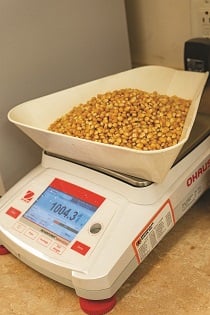
Thanks to Ohio farmers, Mennel Popcorn produces butterfly and mushroom popcorn that is packaged for customers such as movie theater chains throughout the world.
Both Mennel and New Vision Farms cite superior customer service — to end users and to each other — as the key to their success.
“We have internal and external customers and we will perform what needs to be done for those customers,” said Jeremy Huston, Mennel Popcorn’s plant manager. “We are a family and we always try to make the right and best decision for our customers.”
Or, as Rettig put it, “We’re all in this together.”
Mennel Milling was profiled in Our Ohio magazine in 2014.


Members have three ways to apply: contacting a certified agent, calling 833-468-4280 or visiting ohiofarmbureauhealthplans.org.
Read More

Legacy nutrient deductions enable new farmland owners to claim deductions on the nutrients within the soil on which healthy crops depend.
Read More

Farmers, agribusinesses and community members are encouraged to nominate their local fire departments for Nationwide’s Nominate Your Fire Department Contest through April 30.
Read More

Introduced by Sen. Paula Hicks-Hudson, SB 120 would establish the Urban Farmer Youth Initiative Pilot Program.
Read More

Gases, vapors, and fumes can all create risk. How can we measure and protect ourselves from them?
Read More

The Ohio Farm Bureau’s Young Agricultural Professionals State Committee has named its 2026 leadership and the individuals who will be serving on the state committee for 2026-2028.
Read More

The Ohio Farm Bureau Foundation has multiple scholarships available to Ohio students from rural, suburban and urban communities who are pursuing degrees with a connection to the agricultural industry.
Read More

With 100% bonus depreciation now permanent, farmers can deduct the full cost of a new agricultural building in the year it’s placed in service.
Read More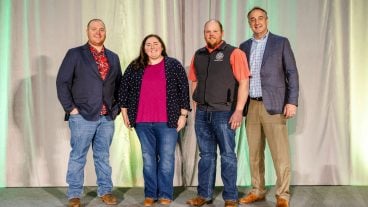
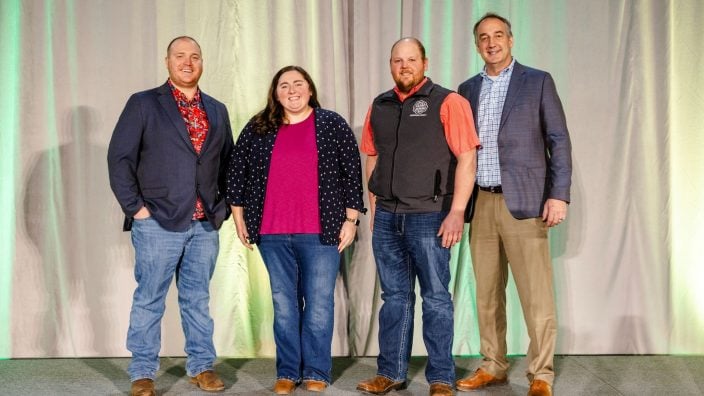
Lincoln Deitrick was named the Outstanding Young Farmer, Denver Davis won the Excellence in Agriculture Award, and Margaret Houts won the Discussion Meet.
Read More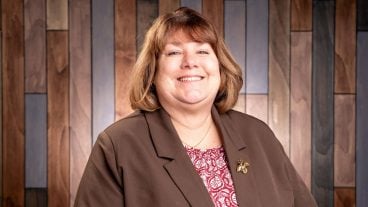
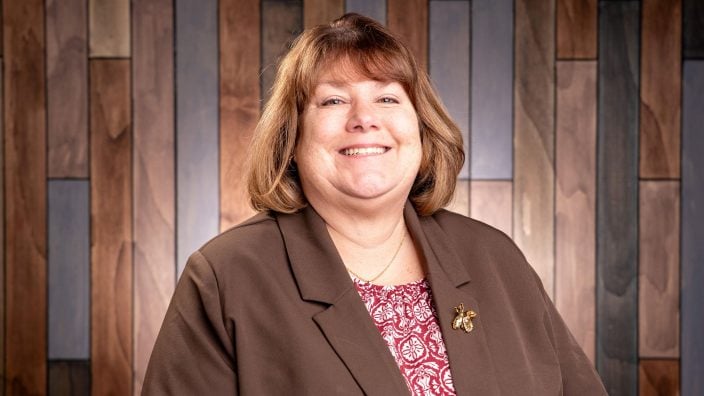
Michelle Downing of Franklin County has been named finance director of county operations for Ohio Farm Bureau.
Read More